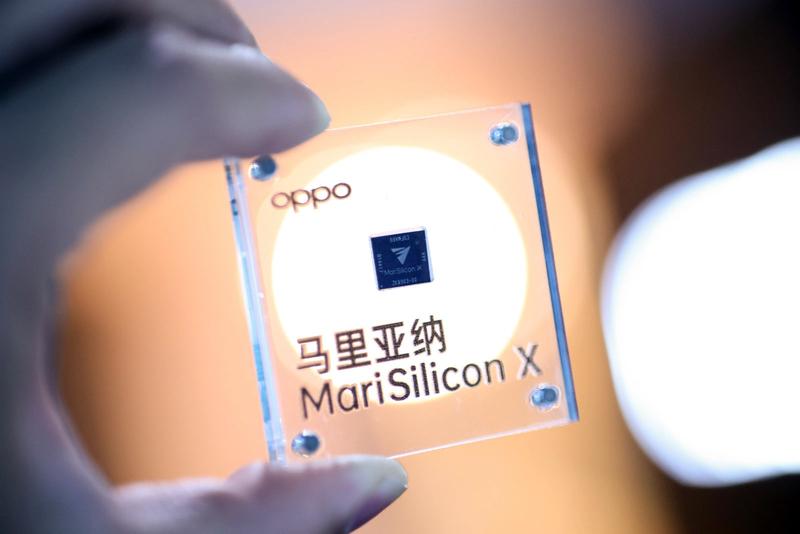 Smartphone vendor Oppo unveils its first self-developed chip MariSilicon X on Tuesday. (PHOTO PROVIDED TO CHINA DAILY)
Smartphone vendor Oppo unveils its first self-developed chip MariSilicon X on Tuesday. (PHOTO PROVIDED TO CHINA DAILY)
Chinese smartphone vendor Oppo unveiled its first self-developed chip on Tuesday, joining the ranks of international peers such as Apple Inc and domestic counterparts such as Huawei Technologies Co to have more control over its own semiconductor design.
The chip-MariSilicon X-is a neural processing unit, or NPU, which can assist in enhancing images by leveraging the power of artificial intelligence. It is part of Oppo's broader push to sharpen its technological prowess as competition in the global smartphone market intensifies.
Chen Mingyong, founder and CEO of Oppo, said MariSilicon X was unveiled after three years of research and development. Built on 6-nanometer process technology, it is a dedicated imaging NPU designed to meet growing consumer demand for better mobile imaging technologies.
"Developing in-house chips is an inevitable choice for Oppo's strategy to solve key problems through key technologies. Without the underlying core technology, there is no future, and flagship products without underlying core technologies are a cloud castle," Chen said.
The senior executive said the experience of developing in-house chips is destined to be bumpy. Similar to the name of this chip, Mariana is the deepest trench in the world, implying the difficulty of developing in-house chips. But MariSilicon X is just a first step and the company will continue to invest resources in chip R&D with a team of thousands, Chen added.
According to Oppo, MariSilicon X will make its commercial debut with its Find X Series in the first quarter of 2022, bringing with it a powerful imaging experience for the smartphone. For instance, the company said MariSilicon X has made a huge leap in both performance and power efficiency, and it unleashes the power of AI noise-reduction algorithms to create clearer and sharper audiovisual results. It also features greater dynamic range and better color reproduction, allowing each individual frame to be as rich and defined as a still photo.
Oppo's ambition came as major smartphone vendors are eyeing in-house processors as a means of differentiating their products from rivals. Major brands such as Huawei, Xiaomi Corp and Vivo have all entered the chip-design business, thus intensifying competition to a new high, experts said.
Fu Liang, an independent analyst who has been following the telecom sector for more than a decade, said the move is of long-term significance for Oppo and will increase its competence, as underlying chip technologies are widely seen as a crucial foundation for hardware companies.
But the chip industry has always been capital and technology-intensive. The investment of domestic mobile phone companies in this field is just a starting point, Fu said.
Currently, a prolonged chip shortage is affecting the smartphone industry, which saw a 6 percent year-on-year decline in smartphone shipments in the third quarter, according to market research company Canalys.
Ben Stanton, principal analyst at Canalys, said chip shortages will not ease until well into 2022.


